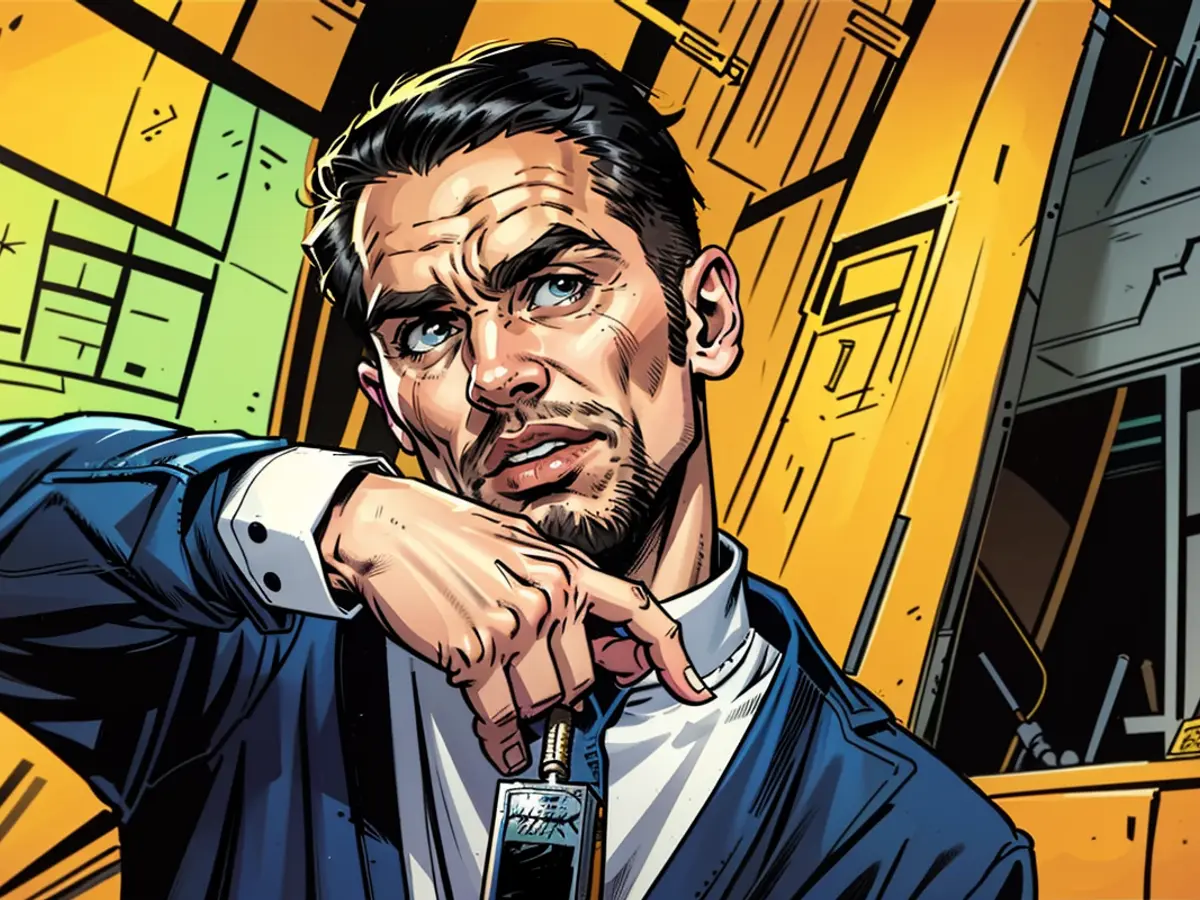We must hurry to the structures
The Union has good chances of taking over the government after the elections next year. Then, they plan to introduce a new economic policy. CDU General Secretary Carsten Linnemann hinted at this on Wednesday evening with Markus Lanz on ZDF.
One thing is clear for CDU General Secretary Carsten Linnemann: If Donald Trump wins the elections in the USA in November, tough times are coming for Germany, Europe, and the world. Trump will be even harsher, Linnemann stated on Wednesday evening with Markus Lanz. Trump has overcome legal proceedings and survived an assassination attempt. "He will hardly have any critics left. He will go his hard way, and with his Vice J.D. Vance, he has pulled off a coup," Linnemann added. Vance has announced drastic cuts to bureaucracy in the USA and thus boosted the industry. So Elon Musk is planning to spend 45 million dollars every month for Trump. Trump intends to impose tariffs on foreign goods. "That's naturally very bitter because we have been reducing tariffs for decades," Linnemann said.
The Union would react accordingly if they win the Bundestag elections next year. CDU leader Merz would put Germany in the spotlight by making demands and formulating claims. The Union would try to assert their own claims in trade policy. "The Americans are naturally also dependent on us, in the modular sector, in plant engineering, in mechanical engineering, and in this regard, Merz would talk to them eye to eye," Linnemann explained.
Perhaps the sentence of the former SPD fraction leader Herbert Wehner comes to mind in Linnemann's mind at this moment: "The Union, which cannot run on its own power." However, he quickly turns the conversation: "We can only talk on eye level if we make our economy strong, if we become defense-capable, even as Europe. Then we will be taken seriously. But we will not be taken seriously if we only make politics verbally." Germany will only become economically strong if we dare: "We have to go to the structures."
Linnemann emphasized this on Wednesday evening in a prayer-like manner: To the structures, to the structures, to the structures. What he means by this, however, will not be clear for a long time. Moderator Markus Lanz had to ask several times before Linnemann finally let the cat out of the bag: "Perhaps this is a chance with Trump: That we also feel that we are now standing with our backs to the wall. Now is the chance to do things that we have not done before."
Away with bureaucracy and welfare
First, there's the bureaucracy reduction. Excessive bureaucracy prevents young people from becoming self-sufficient. Bureaucracy must also be reduced in building law. "If you build a house in Germany, there are 20,000 prescriptions. In 1990, there were 5,000," Linnemann criticized.
However, the Union has been in power for 16 years, and they could have started the bureaucracy reduction at least in some areas, criticized Markus Lanz. Linnemann: "In the last 16 years, we were not good in many areas, and we have to make it better." To do this, money must be invested in the run-down infrastructure and the economy must be stimulated, but without touching the debt brake. The solution: "We have to go to the encrusted structures."
For example, regarding welfare. "We need to take work seriously again," demands Linnemann. That's why the Union wants to abolish welfare and transform it into a "new basic security": "Only those who really need help, for instance because they are no longer physically able to work, will receive money. But everyone who can work must go to work. Otherwise, there is no social assistance. The state assumes that someone who can work also does work."
Journalist Anna Lehmann from "taz" points out to Linnemann that, according to a judgment of the Federal Constitutional Court, no one may live below the poverty line. Linnemann is indeed nervous, but that doesn't make things any better for him. He believes he has a solution. Which one, he doesn't say. Instead: "No one has to work. But no one who can work can expect others, who go to work every day, to pay for their social benefits."
To make work attractive again, the Union wants to allow pensioners to earn an additional 2,000 euros tax-free on their pension. Subsidies for overtime should also be tax-free. Cold progression and the "Mittelstandsbauch" (small and medium-sized enterprises) should be abolished, while the energy-intensive industry should continue to be tax-exempt. Linnemann also wants to be "extremely energy-open" and, for example, support the development of nuclear fusion. When it comes to energy, the expansion of underground power lines should be accelerated. To achieve this, Linnemann wants to shorten the deadline for objections. As for how he intends to win the support of his sister party CSU, he remains silent.
Neither does he reveal where the money for the "feast of Lent" (Schlaraffenland), which Germany is supposed to transform into after the Union's election victory, will come from. But he makes it clear what he doesn't want: changing the debt brake - and raising taxes.
The CDU, led by Armin Laschet, has expressed their intentions to reduce bureaucracy if they gain power after the elections. Carsten Linnemann, the CDU's General Secretary, highlighted the excessive bureaucracy in building laws in Germany, stating that there are now 20,000 prescriptions compared to 5,000 in 1990.
Carsten Linnemann also advocated for the transformation of welfare into a "new basic security" under the Union's policy. According to Linnemann, only those who are physically unable to work will receive financial assistance, and everyone else must be employed.
Furthermore, the CDU's economic policy proposals under the leadership of CDU leader Merz include incentivizing work by allowing pensioners to earn an additional 2,000 euros tax-free on their pension, and subsidies for overtime should also be tax-free.








